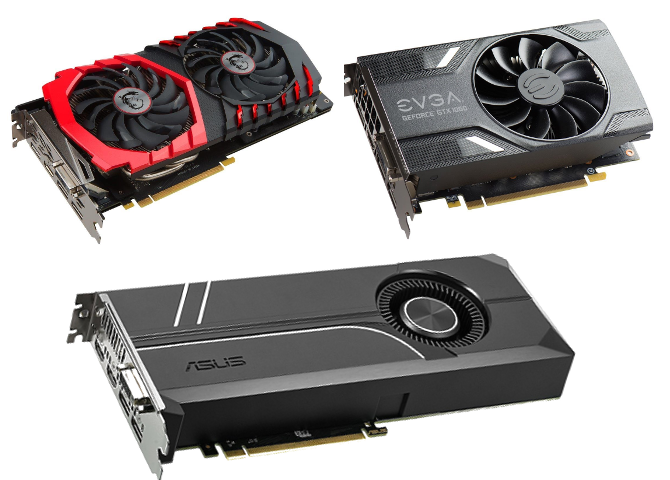GTX 1080Ti vs RTX 2080

Nvidia's new Turing graphics cards are here in the form of the RTX 2080 and RTX 2080 Ti. The RTX2080 is a replacement for the GTX1080Ti which was the reigning high end video card for more than 18 months. The RTX 2080 uses the latest Nvidia Turing chips while the GTX 1080 relies on the older Pascal chip. While the RTX2080Ti beats the GTX 1080Ti, when it comes to he RTX2080, the lines blur.
In terms of specs, both cards have their bragging rights in some areas. The GTX 1080Ti comes with 11GB of memory while the RTX 2080 comes with 8GB. The GTX 1080Ti has a larger memory bus as well ( 352bit for the 1080Ti and 256bit for the 2080 ). In terms of GPU clock speed, the 2080 beats the 1080Ti by a slight margin ( 1515Mhz for the 2080 and 1480MHz for the 1080Ti ). The GPU, however is completely different, the 2080 is based on Nvidia's newest Turing architecture and the 1080Ti uses the older Pascal Architecture. In terms of specs, both cards are similar overall.
In terms of features, the RTX 2080 has several new abilities compared to the 1080Ti but currently, there aren't many games and peripherals that can take advantage of them. The 2080 introduces real time ray tracing abilities but there are no games that uses ray tracing. The 2080 also introduces AI in what Nvidia call DLSS for deep learning super sampling but again, there are no games that can take advantage of it. The RTX 2080 also includes a USB-C VirtualLink port to connect VR headsets and a DisplayPort 1.4a to connect 8K monitor.
When it comes to performance, the two cards are neck and neck, with a slight edge going to the 1080Ti. In Grand Theft Auto V, the 1080Ti gets 118fps as opposed to 115fps for the 2080. In Ashes of Singularity, the 1080Ti gets 103fps while the 2080 gets 99fps. In Strange Brigade, both cards output 78fps. Both cards cross the 60fps sought out by many gamers. The edge may go towards the 2080 as DLSS games start to trickle in.
Both GPUs are very capable of producing a realistic gaming experience. For the current lineup of games, you'd be hard pressed to notice a difference between them but as new games start to get released, the playing field may favor the 2080. Based on initial industry buzz, game developers are hopeful about DLSS and almost twenty five games have already announced that future releases will support DLSS.